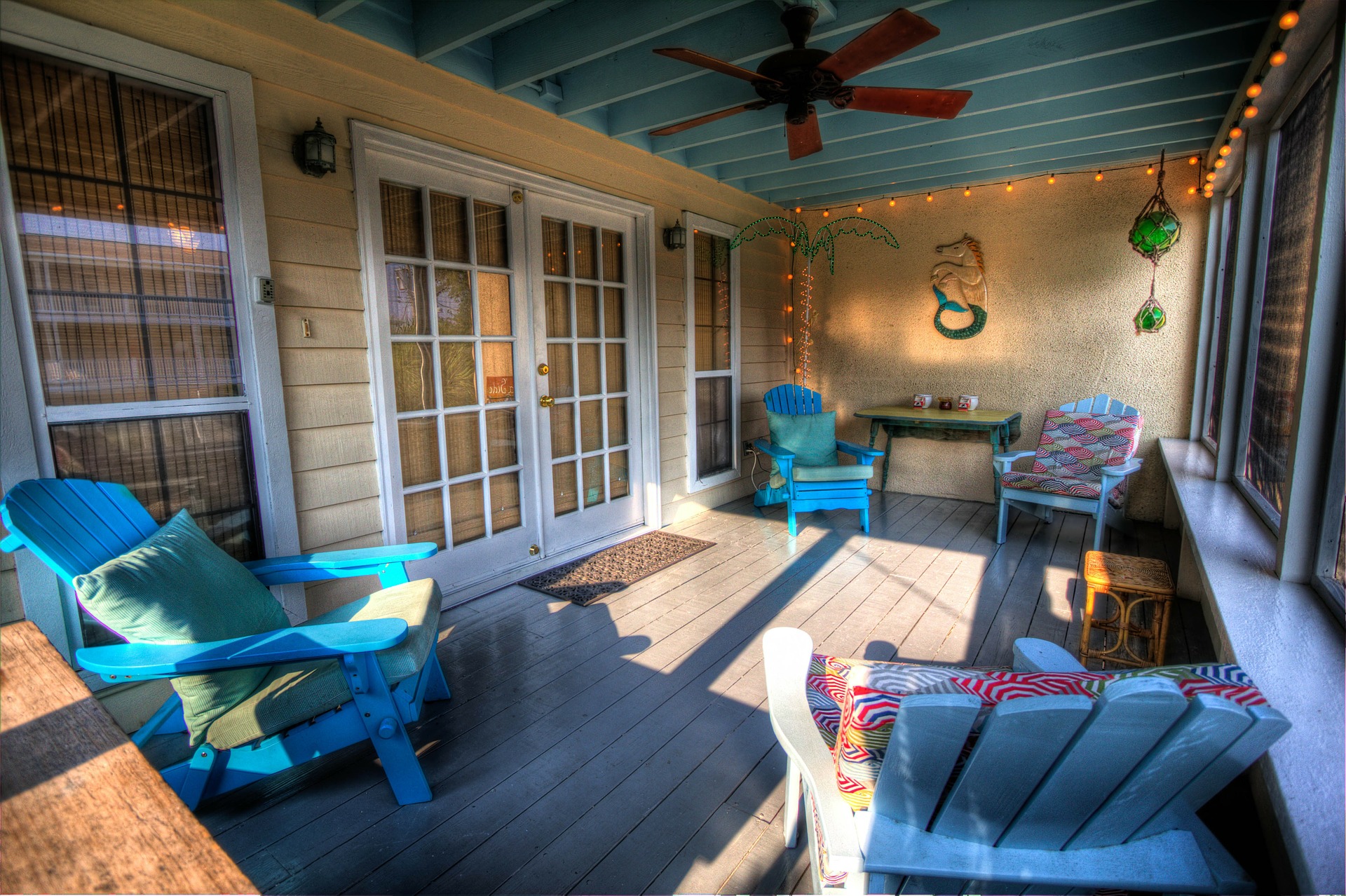Keep Your Wooden Porch In Prime Condition
Sep 27, 2019 22:34
If you have a wooden porch you're likely no stranger to the fact that it can degrade and rot over time, and if this is left unattended you will likely someday find yourself with a porch that is unsafe and unusable. The worst part is that a porch is not a cheap investment, if you need to replace it you could easily be out thousands of dollars. That's why it's so important that you perform routine upkeep to make sure that you preserve the integrity of your porch as much as possible.
A little effort along the way can extend the lifespan of your porch for years to come. When you notice that your porch's paint job is beginning to wear, here are the steps you should take to make sure it is protected from the damage that the elements can impose upon it.
Remove The Peeling Paint
When you see that the paint on your porch is starting to lift, that's a good sign that it's time to give it some attention. The first thing you're going to want to do is to remove the old paint layer so that your new top coat will set properly and not simply flake off in the near future.
Start with a paint scraper and quickly scape away at the flakes to remove as many as possible. You'll want to go a bit deeper than that though, and the easiest way to do that is to give it a strong blast with a pressure washer. Any residential model will do the trick, but a machine with higher power will make quicker work of the job. Look for one with a higher PSI rating, the chart at TBEPW is a good place to get started. Alternatively you could use a power sander to remove the paint, but it's a bit more laborious and will create quite a bit of dust which you'd prefer not to breath in.

Apply The Primer
Some people like to skip or shortcut this step, but the best results are generally observed when a proper primer coat is applied prior to the final top coat of paint. While you can opt for a dual primer-paint mixture, the results are often inferior. Use a roller brush to apply the bulk of the primer, but most likely you're going to have to do a lot of the detail work by hand. Patience is key, and if you stick with it you'll get through priming all of the surfaces before you know it.
Once the primer is applied make sure to give ample time to dry before proceeding to the final coat. Some people will opt to sand the first layer of primer and apply a second coat, which will indeed provide superior results if you are willing to put in the extra effort. It's also worth checking with the manufacturer of the paint to see if they recommend multiple coats of primer. If they do, then sanding after each coat is likely recommended.

Finishing With The Top Coat
Now that your porch is properly prepared and primed you're ready for the top coat. Luckily this is where the project starts to come together, so it's usually the most rewarding step. You'll almost certainly want to apply two or more coats of the finishing paint, so your first layer can be somewhat cursory. As you apply the second layer though, you'll want to make sure that you're more thorough and that every part of the porch surface is thoroughly covered so that no wood is exposed whatsoever. Exposed wood is susceptible to rot, which is what will give you problems down the road.
Make no mistake, painting your porch is a big project that will take you quite a bit of time and patience. However, it's something that needs to be done to keep your porch in good shape for the future. If all of this seems daunting you can certainly hire a painter to take care of the work for you. Of course this will cost some money as well, but the amount you'll save by avoiding a replacement porch will be worth it.







































































